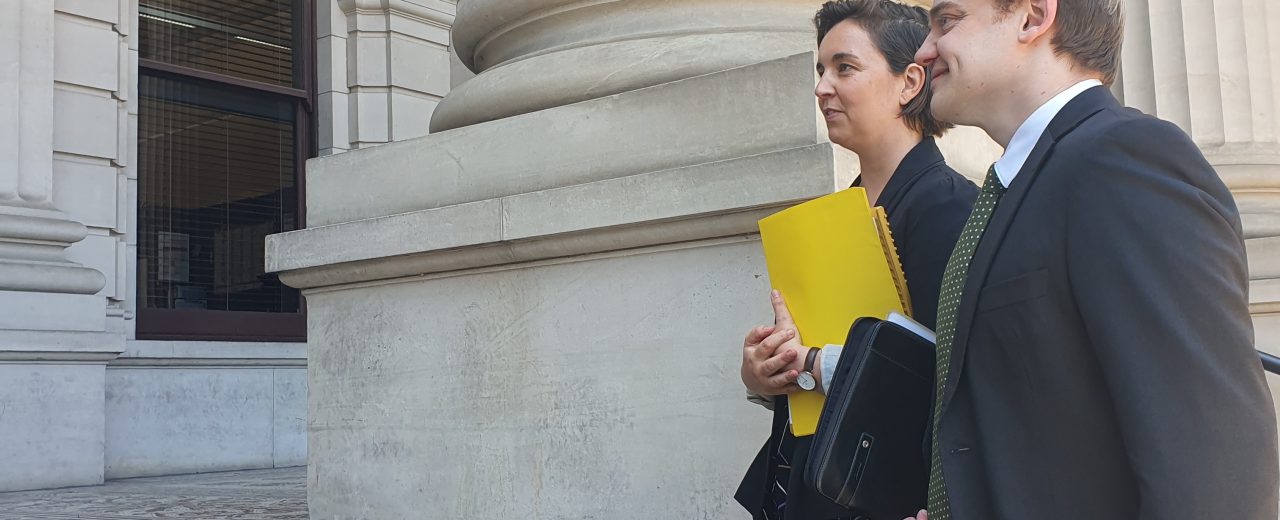Our evidence at Victoria’s first ever Parliamentary Inquiry into Homelessness
27 Nov 2019
Over the past week, we saw the first ever inquiry into homelessness in Victoria. The inquiry was a crucial step towards understanding the changing scale and nature of homelessness across the state. Justice Connect was the only legal services provider invited to give evidence.
Justice Connect’s Cameron Lavery and Samantha Sowerwine presented at the first hearing. Together, they urged the Committee to prioritise prevention and early intervention to end evictions into homelessness. They also recommended an end to the criminalisation of homelessness by diverting people away from the justice system and looking to service-based responses to break the cycle between prison and homelessness.
Here are our three core asks of the inquiry.
1. Focus on prevention and early support
Through our work, we know that most evictions into homelessness are avoidable. By focusing on prevention, we can ensure people stay in housing and stop homelessness before it happens.
“Through our Women’s Homelessness Prevention Project, we know that integrated legal and social work assistance can make evictions into homelessness a last resort. Every day, we see the impact of holistic legal services that help women and children to avoid the crisis of homelessness and support them to achieve long-term stability and safety,” says Cameron Lavery Manager and Principal Lawyer from Justice Connect’s Homeless Law service.
2. Build more homes to help end the housing crisis
There are now more than 25,000 homeless Victorians and almost half of them are women. There are also more than 82,000 people on the Victorian social housing waiting list, including more than 24,000 children.
The private rental market remains inaccessible for many vulnerable Victorians. Victoria currently has the lowest proportion of social housing stock in Australia. To address the acute shortage of affordable housing and meet rising demand, Justice Connect joined the calls for 6000 more public and community housing properties to be made available, with the addition of specialist support services each year for the next decade.
3. Service-based responses, not justice system responses
People experiencing homelessness are at particular risk of being caught in the justice system because they are often forced to live their private lives in public places. Justice Connect’s Homeless Law service has spent the past 20 years helping homeless Victorians with fines and charges related to being homeless. Over that period, we have seen that enforcement-based responses to homelessness and poverty don’t work.
“We can’t arrest our way out of homelessness. The justice system isn’t the answer to homelessness. We need to prioritise service-based responses which can address the underlying causes of offending,” says Samantha Sowerwine, Principal Lawyer, of Justice Connect’s Homeless Law service. “Relying on enforcement effectively criminalises social and health issues, compounding homelessness and further burdens Victoria’s already stretched justice system.”
We hope this inquiry provides insight into the social, economic and policy factors that impact homelessness. We need to identify how policies and practices from all levels of government impact service delivery for people experiencing homelessness. When we know the reasons behind homelessness, we can work to prevent it from happening. We can address housing inequality and provide the services people need to get back into safe, stable housing – or avoid an eviction in the first place.
If you’re at risk of being evicted into homelessness, apply for free legal help.


